SUMMARY
This is AI generated summarization, which may have errors. For context, always refer to the full article.
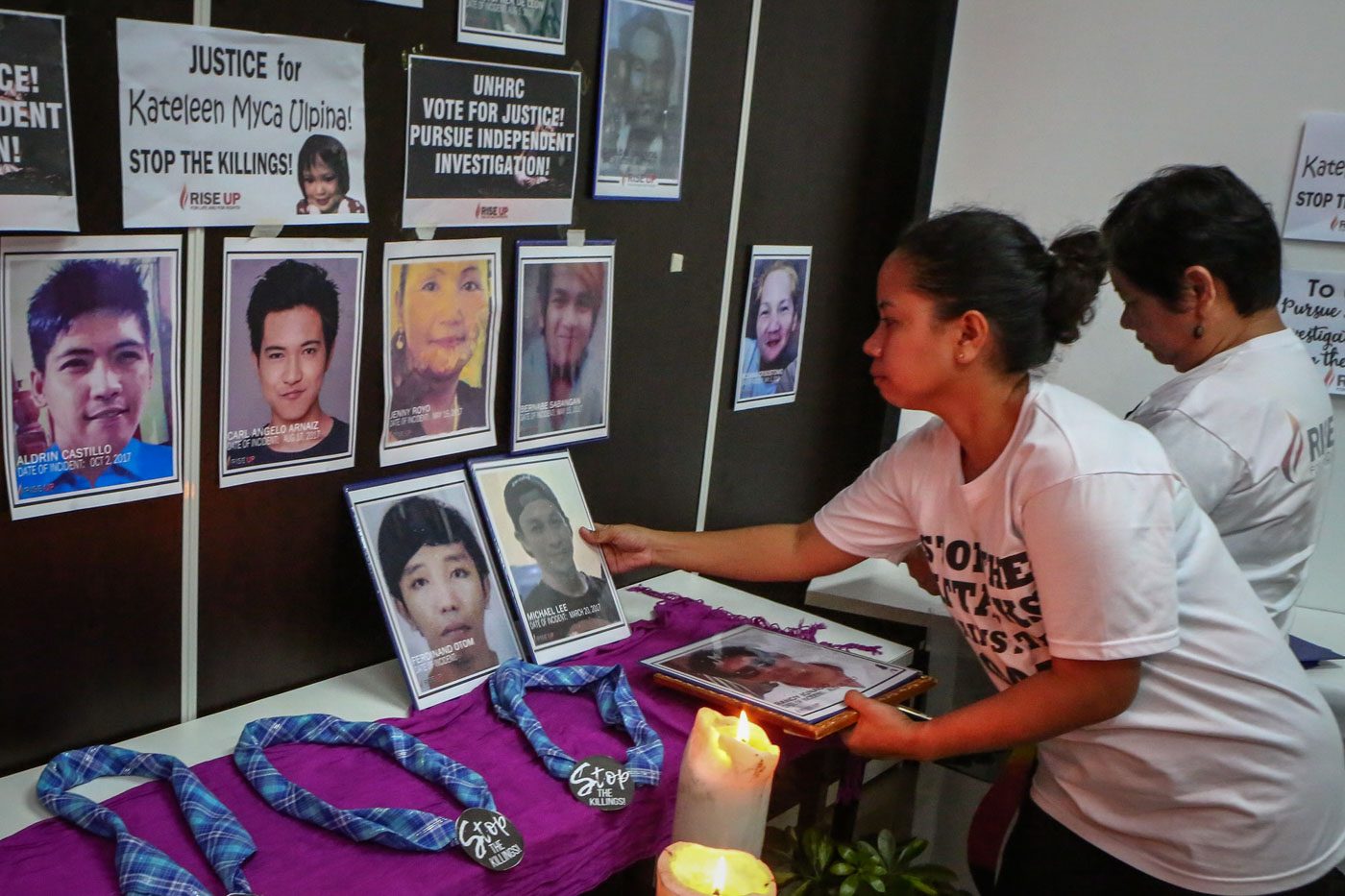

MANILA, Philippines – Presidential candidates on Sunday, April 3, agreed that while the proliferation of illegal drugs must be addressed, the violence and deaths that have dominated President Rodrigo Duterte’s flagship campaign must be stopped.
During the second Comelec-sponsored PiliPinas presidential debate, moderator Ces Drilon brought up the issue of extrajudicial killings (EJKs) that have trailed the Duterte administration since 2016.
Faisal Mangondato condemned the killings, adding that it’s hard to determine if victims were really criminals or just happened to be in the wrong place at the wrong time. Mangondato also said of EJKs, “Kung may kasalanan, dalhin sila sa hustisya, at kung may parusa, ibigay sa kanila kung ano ang kaparusahan.” (Bring them to justice if they did something wrong and let them face the consequences if proven guilty.)
He pointed out that extrajudicial killings also occurred in Mindanao, even before the rise of reported incidents in Metro Manila.
“Matagal na ang panahon na maraming mga tao na namatay na hindi man lang nalaman sa Maynila ang pangyayari,” he said. (Killings have been happening for a long time in Mindanao without people in Manila even knowing about them.)
It is not known what part of Mindanao Mangondato was referring to, but incidents of extrajudicial killings have been recorded in Duterte’s hometown allegedly carried out by the notorious Davao Death Squad (DDS).
The International Criminal Court’s pre-trial chamber said that the similarities between the killings under the nationwide drug war and those that occurred in Davao City when Duterte was mayor and vice mayor “merit further investigation.”
Where is due process?
According to the government, 6,229 people were killed in police anti-drug operations from July 1, 2016, to January 31, 2022. This number excludes victims of vigilante-style killings. But human rights groups that have direct contact with families of victims peg the number of EJKs between 27,000 and 30,000.
Another presidential candidate, Jose Montemayor Jr., said that the existence of extrajudicial killings committed by the Duterte government is obvious. But further investigations might only occur after Duterte steps down from office after the 2022 elections.
“Napakaraming umiiyak, tumatangis na mga kamag-anak na nagsasabi na ang kanilang kamag-anak ay pinatay,” he said. “Meron pa bang due process ngayon? Wala na.“
(So many families crying, saying that their loved ones were killed. Do we still have due process now? I don’t think so.)
Despite promises from the Department of Justice-led inter-agency drug war review panel, only the killing of 17-year-old Kian delos Santos in 2017 has led to a conviction. It has been six years of trauma and harassment as families of thousands of other victims continue to face obstacles in their quest for justice.
Beyond killings
Vice President Leni Robredo highlighted the need for an anti-illegal drug campaign that focuses on prevention and cure, instead of killings.
Robredo, who co-chaired the Inter-Agency Committee on Anti-Illegal Drugs (ICAD) for 18 days before getting fired by Duterte in late 2019, said it’s also time to revisit laws on illegal drugs as well as learn from best practices around the world.
“Kapag hindi natin ‘to inayos, hindi natin napapangalagaan iyong karapatang-pantao ng bawat isa (If we don’t fix this, we will not be able to protect the human rights of each person),” she said.
Senator Manny Pacquiao, meanwhile, said that he will not kill small-time users, but will target those who bring in illegal substances into the country.
“Ang papatayin ko, at i-public ko pa, ay iyong nagpapasok nitong mga droga dahil sila ang salot, sila ang dapat parusahan dahil kawawa iyong mga mahihirap at ang nadadamay ang mga user,” he said.
(The ones I will have killed, and I will even publicly announce this, are those who bring in drugs because they are the menace. They are the ones who should be punished because they target poor Filipinos and increase the number of drug users.)
The senator also said he will not tolerate erring policemen, but echoed Duterte’s usual messaging that he will still look out after his men.
Duterte, during his last State of the Nation Address, highlighted the need for a law that would give free legal assistance to state agents charged in relation to the performance of their duty.
“Kung ako ang magiging pangulo, poprotektahan ko din ang aking mga army… puwedeng sa mga kapulisan natin, kasundalohan natin, dahil sila ang nagse-secure ng seguridad natin dito sa bansa,” Pacquiao said. “I-balance na lang natin,” he added.
(If I were to become president, I will also protect my men since they are the ones who secure our country. Let’s just balance it.) – Rappler.com
Add a comment
How does this make you feel?
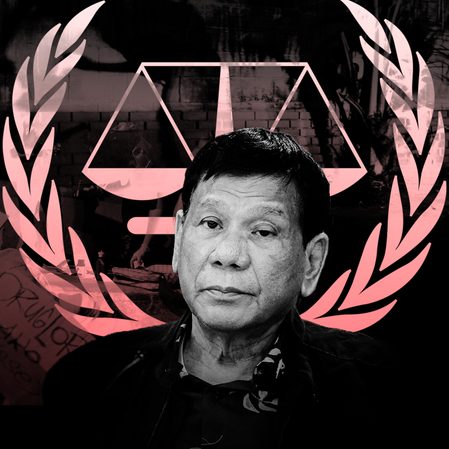
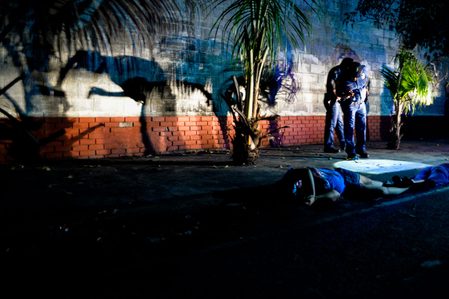





![[Newspoint] Improbable vote](https://www.rappler.com/tachyon/2023/03/Newspoint-improbable-vote-March-24-2023.jpg?resize=257%2C257&crop=339px%2C0px%2C720px%2C720px)
![[Newspoint] 19 million reasons](https://www.rappler.com/tachyon/2022/12/Newspoint-19-million-reasons-December-31-2022.jpg?resize=257%2C257&crop=181px%2C0px%2C900px%2C900px)
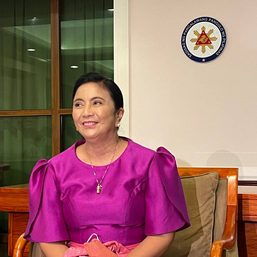






![[New School] Tama na kayo](https://www.rappler.com/tachyon/2024/02/new-school-tama-na-kayo-feb-6-2024.jpg?resize=257%2C257&crop=290px%2C0px%2C720px%2C720px)


![[The Slingshot] Lito Patay’s 4 hours and 38 minutes of infamy](https://www.rappler.com/tachyon/2024/07/Lito-Patay-4-hours-infamy-July-19-2024.jpg?resize=257%2C257&crop=233px%2C0px%2C720px%2C720px)

![[The Slingshot] A Duterte and Bato cop named Patay](https://www.rappler.com/tachyon/2024/06/tl-lito-patay.jpg?resize=257%2C257&crop=322px%2C0px%2C720px%2C720px)
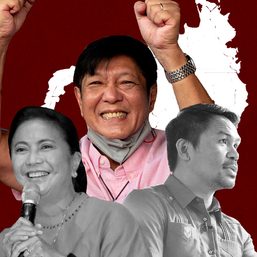
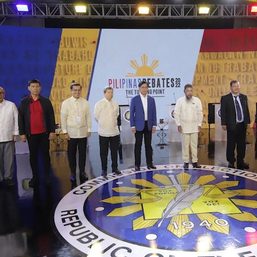
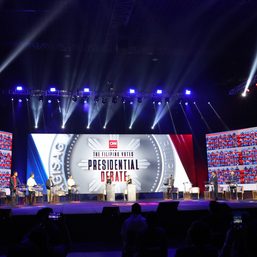
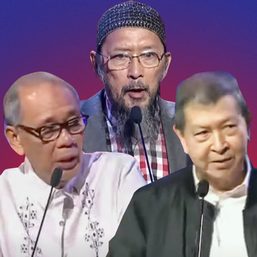


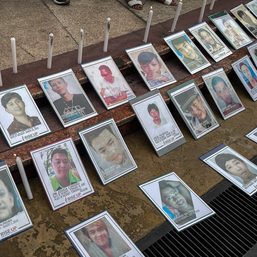
![[EDITORIAL] Sorry Arnie Teves, walang golf sa kulungan](https://www.rappler.com/tachyon/2024/03/animated-arnie-teves-arrest-carousel.jpg?resize=257%2C257&crop=310px%2C0px%2C720px%2C720px)
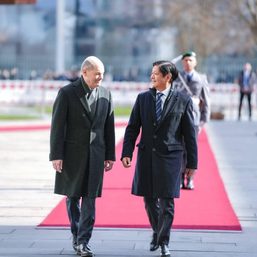
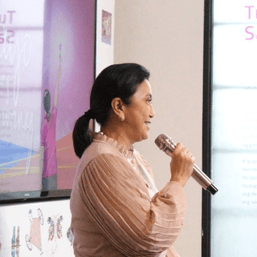

![[Newspoint] A fighting presence](https://www.rappler.com/tachyon/2024/07/thought-leaders-a-fighting-presence.jpg?resize=257%2C257&crop=441px%2C0px%2C1080px%2C1080px)
![[Closer Look] ‘Join Marcos, avert Duterte’ and the danger of expediency](https://www.rappler.com/tachyon/2024/06/TL-trillanes-duterte-expediency-june-29-2024.jpg?resize=257%2C257&crop_strategy=attention)





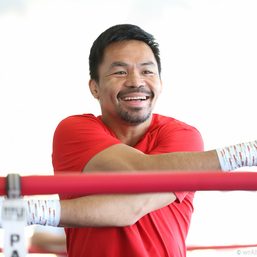
There are no comments yet. Add your comment to start the conversation.